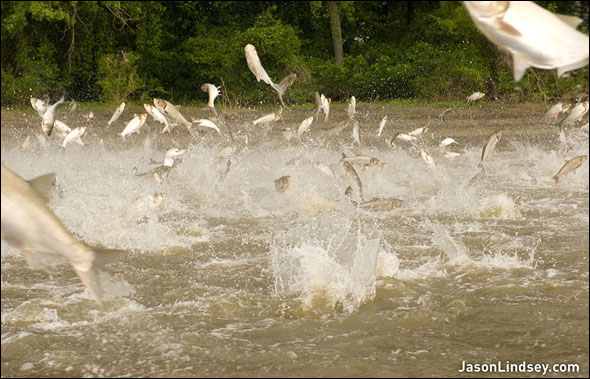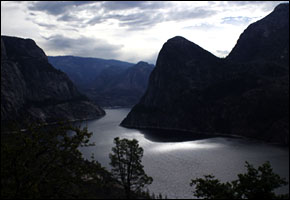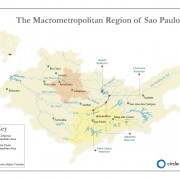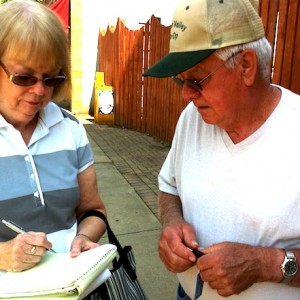U.S. Congress to Get Asian Carp Solutions by 2013, Two Years Ahead of Schedule
The U.S. Army Corps of Engineers is taking steps to speed up its recommendations for keeping invasive species out of the Great Lakes — but will its actions be quick enough to stop Asian carp?
By Codi Yeager
Circle of Blue
By the end of next year, the United States Army Corps of Engineers will give Congress a set of proposals for stemming the flow of Asian carp and other invasive species between the Great Lakes and the Mississippi River Basin, White House officials announced last Tuesday. The recommendations will come two years before the scheduled release of a complete feasibility study that would allow work on a permanent solution to begin.
–Joel Brammeier, president and CEO
Alliance for the Great Lakes
Three species of Asian carp, which are native to Eurasia, have been making their way through the Mississippi River watershed since escaping U.S. aquaculture facilities in the 1970s. The carp consume large quantities of plankton and can out compete native fish populations. Many fear the invasive carp could devastate the $US 7 billion sport-fishing industry in the Great Lakes, if the carp were to get past electric barriers in Chicago — and some data, though debated, suggests that they already have.
“It is a positive step to see that the Corps is starting to understand how urgent this is to the Great Lakes, and getting those options out for public consumption as quickly as possible is a positive step,” Joel Brammeier, President and CEO of the Alliance for the Great Lakes, told Circle of Blue.
But he added that the Alliance believes the only permanent solution to the problem lies in cutting the connection between the Great Lakes and the Mississippi River Basin. Brammeier cited a power outage on May 2 that, for 13 minutes, shut down all three of the electric barriers that the Corps currently operates in the Chicago Sanitary and Ship Canal.
“The power outage last week is a good indicator why tech solutions, however useful they are in the interim, are not a permanent solution that the Great Lakes can rely on,” he said. “We’ve been asking all along to focus on one solution — hydrological separation of the Great Lakes and Mississippi River basins — and this decision does not do that. Getting options in front of Congress is good, but whether it leads to hydrological separation any faster is still up in the air.”
Is Faster Fast Enough?
When Congress receives the list of possible solutions from the Corps, legislators will then be able to select the option that they prefer. But the Corps will still have to perform more design and feasibility studies, meaning that work on a permanent solution may not begin any sooner than the original 2015 study deadline.
–Joy Yearout, spokesperson
Michigan Attorney General Schuette
This is not fast enough for a number of Great Lakes states.
Michigan, Ohio, Pennsylvania, Wisconsin, and Minnesota have pursued a number of legal avenues trying to force the Corps to take faster action. In February, their attempt to involve the U.S. Supreme Court was denied for a third time. And, despite Tuesday’s announcement, the states are still going forward with a lawsuit against the Corps and the Chicago Water District in federal district court.
“The Army Corps is just giving us more of the same,” Joy Yearout, spokeswoman for Michigan Attorney General Bill Schuette, told Circle of Blue. “They are continuing to study ways to stop Asian carp that we know won’t work, when there are steps that could be taken now. That is why the lawsuit is still moving forward.”
Michigan and the other plaintiffs are pushing for permanent separation of the two watersheds, and say a study — released in January by the Great Lakes Commission and the Great Lakes and St. Lawrence Cities Initiative — shows it can be done. The report details three methods for watershed separation in Chicago, which range in price from $US 3.26 billion to $US 9.54 billion.
“The Great Lakes Commission finished their study this year that took a serious look at options for separation,” Yearout said. “The Army doesn’t need to reinvent the wheel — we want them to act now.”
A news correspondent for Circle of Blue based out of Hawaii. She writes The Stream, Circle of Blue’s daily digest of international water news trends. Her interests include food security, ecology and the Great Lakes.
Contact Codi Kozacek












Leave a Reply
Want to join the discussion?Feel free to contribute!